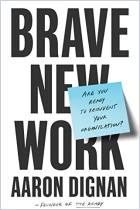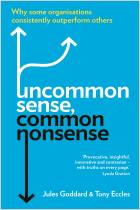Зарегистрируйтесь на getAbstract, чтобы получить доступ к этому краткому изложению.

Зарегистрируйтесь на getAbstract, чтобы получить доступ к этому краткому изложению.
Lars Kolind and Jacob Bøtter
Unboss
Jyllands-Postens Forlag, 2012
Что внутри?
Learn how to manage organizations in a knowledge-based economy.
Recommendation
Lars Kolind and Jacob Bøtter offer an intriguing guide designed to help organizations meet the challenges of a new business world. Today, knowledge, purpose and collaboration – rather than hierarchy, competition and a bottom-line-only focus – make the difference between success and failure. Traditional management structures form such a solid foundation of the conventional view of the world of work that it is difficult to examine them, much less imagine living without them. But if you want to take a different approach – one that is beginning to sound less radical, that does not rely on creating winners and losers, and that gives your firm a purpose beyond your bottom line – try “unbossing.” This collaborative management method relies on shared passion, adult responsibility and sharing work within and outside of an organization. The authors combine astute analysis with anecdotes that demonstrate the possibilities of managing differently and more appropriately for today’s knowledge-based world. getAbstract recommends this insightful – if optimistic – overview of tomorrow’s management techniques to managers, academics, start-up entrepreneurs and those seeking new, more effective methods.
Summary
About the Authors
Lars Kolind was group chairman of Grundfos, the world’s largest manufacturer of water pumps. Jacob Bøtter helped establish Wemind A/S, a Danish consultancy company.


















Comment on this summary